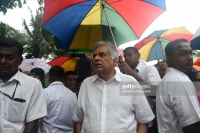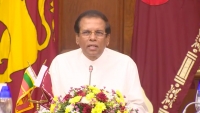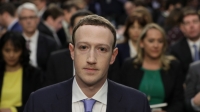"When petrol is purchased at Rs.102 and sold for Rs.162, why does the Petroleum corporation run at a loss?". "Where did that money go?". These were some of the uncomfortable questions asked by Minister of Science and Technology Patali Champika Ranawaka at the launch of his book "Power and Power" at the SLFI auditorium yesterday.
People should be made aware as to why a liter of diesel is imported at Rs. 103 but sold at Rs. 125. Similarly, a petrol liter is imported at Rs. 97 or Rs 100 and sold at Rs. 162 or Rs 170. The public has a right to know what happens to the petroleum tax levied from them, Ranawaka further said.
{module LOLC}
He also mentioned that even though the estimated loss conveyed to the Public Utilities Commission before the year began said that the Lanka Electricity Company (LECO) will accrue a loss of Rs 7000 million in the first six months of this year, the loss has run to Rs 21,000 million.
Industries and the public should have a right to know why such losses are occurring despite the fact that the revenue of Fuel Adjustment Charges were at Rs. 25,000 million. The public has a right to know how this money was spent.
In his book, Minister Champika Ranawaka rejects many persistent myths about energy use including that which states "coal is the cheapest form of energy", "solar power is abundant so why not use it in lieu of every other source of energy?", "nuclear energy is dangerous for small countries such as Sri Lanka".
He amusedly mentioned the fact that we should be careful when we create our super highways and 40 story casinos because in 40 years we won't have the energy to run vehicles on such roads nor operate the lifts required to reach the upper floors of high rise buildings. He soberly pointed out the example of Norway which is completely self-sufficient in oil who never construct any building over 5 stories tall because they are very much aware of the fact that oil will run out and these buildings which are created to last decades should still be accessible in a world without it.
In his speech, Ranawaka slammed the global energy mafia and its local counterparts, whom he called "white collar criminals" who prevent a price regulation system from being introduced. He stated that energy was behind power politics and for the energy mafia, "oil is thicker than blood." He further said the people should join to defeat the future generations from these criminals.












